Premium Only Content
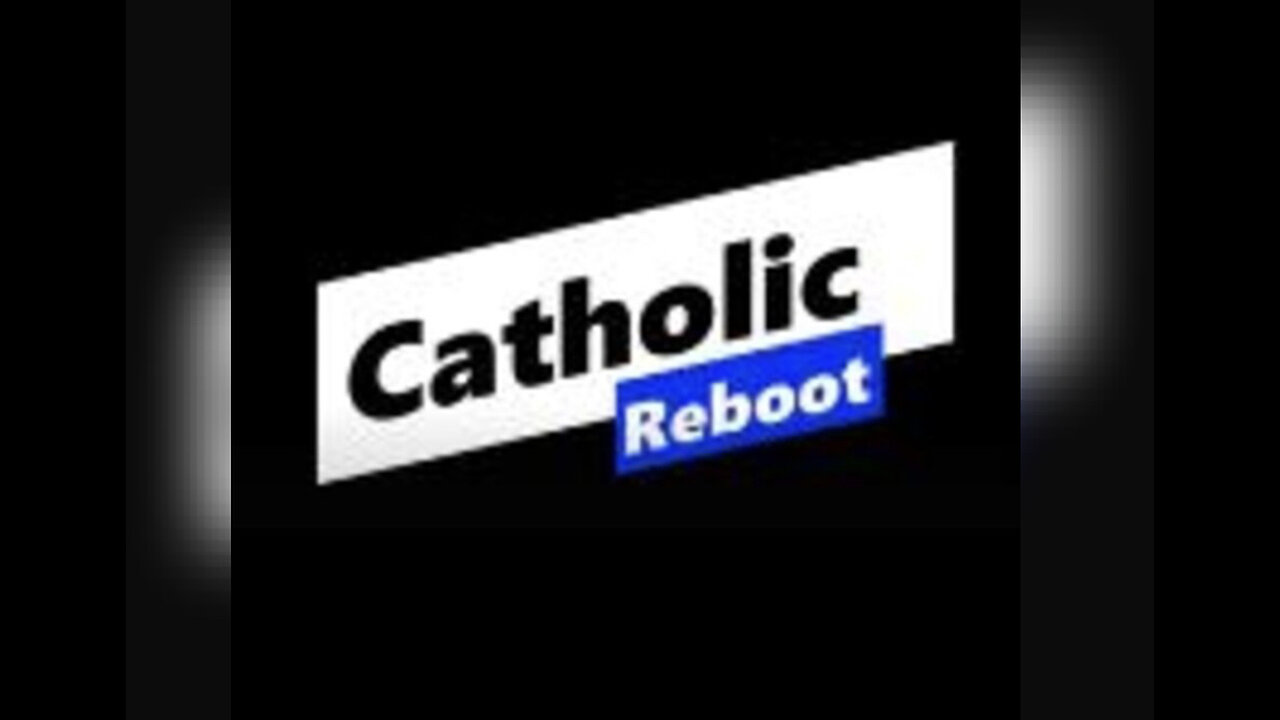
Episode 1704: BAHHH HUMBUG or Advent Season of Christ
The most iconic line in the story “A Christmas Carol”, written by Charles Dickens published in 1843, was Bahh humbug and it tells the story of Ebenezer Scrooge, a miserly old man who undergoes a dramatic transformation after being visited by the ghosts of Christmas Past, Present, and Future. Ebenezer states that line after Scrooge's nephew, Fred, enters the counting house and wishes him a "Merry Christmas," Scrooge replies with a gruff:
Scrooge: "Bah! Humbug!"
Fred: "Christmas a humbug, uncle? You do not mean that, I am sure?"
Scrooge: "I do. Merry Christmas? What right have you to be merry? You're poor enough."
Fred: "Come, then, what right have you to be dismal? You're rich enough."
This exchange sets the stage for Scrooge's miserly and dismissive attitude towards Christmas and its spirit.
Scrooge refusing Cratchit's request for Christmas Day off:
Cratchit, clearly cold and shivering, timidly asks Scrooge for the day off with pay to spend Christmas with his family. Scrooge, fueled by his "Bah Humbug!" spirit, responds harshly:
Cratchit: "Mr. Scrooge, if you please, just tomorrow... Could I be allowed the day off, with pay, to celebrate Christmas with my family?"
Scrooge: (scornfully) "Bah Humbug! Christmas! Do you know how much money I lose every hour that this office is not open?"
Cratchit: "Mr. Scrooge, it's just one day..."
Scrooge: (interrupting) "And who will do the work? You expect me to do it myself?"
This exchange shows Scrooge’s utter disregard for the well-being of his employees and his obsession with profit, even on a special day like Christmas.
BUT is there also another message in this story? Is there a reverse messaging? Are we as Catholics taken in more by the celebrations during the advent season and saying Bah humbug to the primary reason of advent? Do we look at the merriment first and maybe just maybe we make our way to Christmas mass? Do we actually prepare and then by so doing have the ability to say in a loud voice “Merry Christmas”?
Also the part of the story somewhat over looked is the ghost of Christmas past in which we see a happy charitable loving Ebenezer. Isn’t that what happens to many of us in life? Do not we have the good intentions and then life’s blows hit us, and certain tragedies take us away from Christ the King and his mystical body. Sure it does and sure we do and so we need to shake off the past and work in the present and future and get back to why we were born. To know to love to serve our lord.
So we as Traditional Catholics know that the main purpose of the 4 weeks of Advent are to prepare for the birth of Christ is a period of From the perspective of traditional Catholicism, the Advent season serves three main purposes, all interconnected and pointing towards the celebration of Christmas:
1. Preparation for the Nativity of Christ:
A time of expectant waiting: Advent comes from the Latin word "advenio," meaning "to come to." It is a period of anticipation and preparation for the momentous arrival of Jesus Christ at Christmas.
Spiritual reflection and renewal: Traditional Catholics use Advent as a time for introspection and spiritual growth. They attend special Advent liturgies, read scripture passages about the coming of Christ, and engage in personal prayer and reflection.
Focus on the historical and theological significance of Christ's birth: Advent is not just about cheer; it is about understanding the profound meaning of Jesus' birth as the fulfillment of God's promise and the source of salvation for humanity.
2. Preparation for Christ's Second Coming:
Vigilance and anticipation: Advent also reminds Christians to be watchful and prepared for the eventual return of Christ at the end of time. This theme is reflected in some Advent hymns and readings.
Living a Christ-centered life: The anticipation of Christ's return serves as a call to action for traditional Catholics. They strive to live lives that are pleasing to God and in accordance with his teachings.
3. Deepening faith and community:
Gathering in prayer: Advent is a time for families and communities to come together in faith and celebration. They attend Christmas Eve Mass, share festive meals, and participate in traditional activities like caroling and gift-giving.
Acts of charity and service: Traditional Catholics are encouraged to use Advent as an opportunity to reach out to those in need. They may volunteer at local charities, donate to worthy causes, or simply perform acts of kindness for their neighbors.
In essence, Advent for traditional Catholics is a multifaceted season that blends expectant waiting, spiritual preparation, and joyful anticipation. It is a time to reflect on the significance of Christ's birth, prepare for his return, and deepen one's faith and connection with the community.
While the specific traditions and practices may vary among different Catholic communities, these core purposes remain central to the traditional understanding of Advent.
The Centrality of the Nativity of Christ:
At the heart of the Christmas season for Catholics is the celebration of the Nativity of Jesus Christ. This momentous event is seen as the fulfillment of God's promise to humanity and the source of hope, joy, and salvation. Christmas celebrations, therefore, revolve around this core belief.
Family and Community:
Family and community gatherings are central to Catholic Christmas traditions. They serve as a way to come together in faith, share in the joy of Christ's birth, and strengthen bonds of love and support.
Christmas Eve: Attending Christmas Eve Mass is a significant tradition for many Catholics. It is a time for prayer, reflection, and anticipation of the
Catholic Christmas Eve Mass
Christmas Day: Christmas Day is a day of Merriment and feasting. Families gather together, exchange gifts, and spend quality time together. Traditional Christmas dishes like roast turkey, ham, and gingerbread cookies are often enjoyed.
Catholic Christmas Day feast
Caroling: Singing carols is a popular tradition that brings people together and spreads cheer.
Catholic Christmas caroling
Focus on Charity and Service:
The Christmas season is also a time for Catholics to remember those less fortunate. Many churches and organizations organize charity drives and volunteer opportunities to help the poor and needy.
Giving to the less fortunate: Catholics are encouraged to donate to charities or give gifts to those in need during Christmas. This reflects the spirit of Christ's message of love and compassion.
Catholic Christmas charity drive
Balance and Moderation:
While celebration and merrymaking are encouraged, the traditional Catholic view emphasizes moderation and reflection during the Christmas season. The festivals should not overshadow the religious significance of the Christmas.
Additional Traditions:
Nativity scenes: Setting up nativity scenes, depicting the birth of Jesus, is a popular tradition in Catholic homes.
Advent wreaths: Lighting the candles on an Advent wreath each week leading up to Christmas is a symbolic way to prepare for the coming.
Christmas trees: Decorating Christmas trees with lights and ornaments is a joyful tradition enjoyed by many Catholics.
It is important to note that the specific traditions and practices may vary depending on cultural backgrounds and individual preferences within the Catholic community. However, the core values of faith, family, charity, and moderation remain central to the traditional Catholic view of Christmas.
So we never treat Advent as BAHH HUMBUG but we also remember what is our main purpose during the advent season and that is to make a change for Christ and grow spiritually and get together with friends and family to share in that merriment but always teaching the faith, spreading the faith and so when you are together with all your friends and family go out and convert someone and Bah humbug to the secularness of the Christmas season.
-
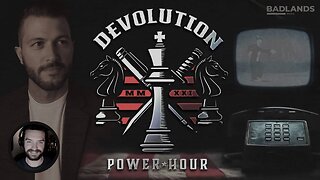 2:18:29
2:18:29
Badlands Media
14 hours agoDevolution Power Hour Ep. 376: Optics, Explosions & the War for the Narrative
144K43 -
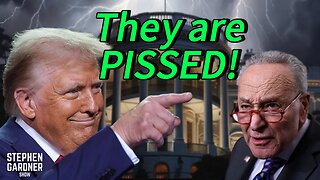 37:46
37:46
Stephen Gardner
12 hours ago🔥Trump NEVER expected THIS WIN as Schumer has EPIC MELTDOWN!
44K37 -
 2:02:41
2:02:41
Inverted World Live
8 hours agoNASA Engineer Says Trillions of Shape-Shifting, Cloaked Devices are Hidden on Earth| Ep. 83
39K11 -
 3:12:37
3:12:37
TimcastIRL
9 hours agoGOP Councilman DOUSED IN GAS, Set ON FIRE In Virginia, Suspect In Custody | Timcast IRL
250K90 -
 2:32:23
2:32:23
The Quartering
8 hours agoOn To The Big Bosses! Act 2 Of Expedition 33
63.1K6 -
 7:36:34
7:36:34
SpartakusLIVE
10 hours agoTiger Blood RESTOCKED and 30% off w/ code SPARTAKUS30
87.4K -
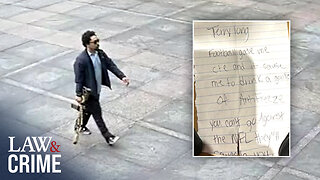 24:58
24:58
Law&Crime
11 hours ago $3.55 earnedSecond Note Leaves Disturbing Clues in New York City Killings
40.5K12 -
 1:36:57
1:36:57
Badlands Media
1 day agoAltered State S3 Ep. 39: Earthquakes, Energy Games & the Fall of the Narrative
78.3K16 -
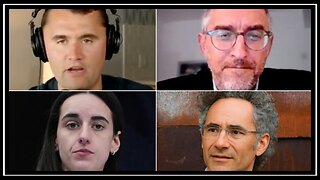 2:04:07
2:04:07
Due Dissidence
16 hours agoCharlie Kirk's GAZA LIES, Caitlin Clark Stalker, Palantir Goes Hollywood - w/ Kyle Matovcik | TMWS
42.4K10 -
 2:54:43
2:54:43
I_Came_With_Fire_Podcast
17 hours agoAmerica First, Trump Threatens China, Your Friendly Neighborhood Illegal, EPA Gets a "W"
40.3K17